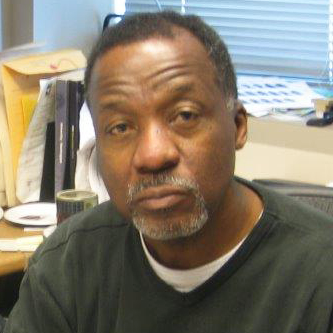In today’s polarized world, where powerful institutions often attempt to silence dissent and dictate the boundaries of discourse, it has become increasingly critical for institutions of higher education to serve as bastions of intellectual freedom and open dialogue.

Clarence Spigner, professor and director of the MS and MPH programs in the Department of Health Systems and Population Health, argues professors have a moral obligation to facilitate this dialogue. “When we have politicians burning books and telling you what not to talk about, that’s the time when higher institutions need to expose censorship and open it up for students to learn,” said Spigner. Indeed, classroom discussion can play a vital role in fostering critical thinking and preparing students to grapple with complex societal issues.
Spigner, who has been on the faculty at the University of Washington for more than 25 years, has a history of teaching classes on controversial topics. Controversial topics can cause public disagreements both in and outside the classroom. His now popular quarterly class on structural racism in public health was once considered controversial, “but we shouldn’t let the fear of controversy make us shy away from things like gender, race intersectionality and LGBTQ+ issues, because these conversations need to happen” said Spigner.
These factors are at the root of a new class being created by Spigner, scheduled to open this spring. The class will focus on the physical, social, and mental health and well-being of students and staff on college campuses during polarizing times. “I’m hoping to open it up, have a dialogue and have students teach each other and me about what it’s like to live in a world where atrocities of biblical proportions are going on,” said Spigner. Though emotions and tension may run high Spigner noted, “focusing on the health and well-being of people is typically a topic that unites students.”
The class will open dialogue on how current events on college campuses, like the recent shooting of three Palestinian students in Vermont effect student and faculty health and well-being. It will also encourage students to look at historical context and understand parallels between current and ongoing events. For example, how current-day doxing and forced resignations of faculty and students across the country mirrors McCarthyism and blacklisting. Spigner hopes his class will help students view college campuses as a microcosm for society at large, equipping students with the knowledge and skills to address pressing health challenges and advocate for social justice.
Spigner’s class will empower students to engage in meaningful dialogue. In past classes, Spigner has created a class structure where students come together, learn about each other, and then work together to teach each other about controversial topics. As Spigner observed:
“It’s best when you let students select controversial or opposing topics to learn about, and then have students from all different areas of studies come together and do their research. They might have some disagreements, but there’s usually a very objective viewpoint and they discover it together.”
-Clarence Spigner
Part of the reason Spigner feels this approach is successful is because it empowers students to create a safe classroom environment where diverse perspectives are valued and respected. Spigner emphasized this point, stating, “If you give students power, and they know they’ll be listened to and they have something to say, and people are willing to hear them out, then it makes discussing these topics better.” Providing students with a platform to voice their opinions and facilitating constructive discussions can promote active learning and intellectual growth.
Moreover, having students effectively teach each other requires empathy and understanding, as Spigner articulated, “You have to teach us, rather than condemn us into looking at it from your point of view. You have to teach us how these events have affected your well-being while also considering the effect it’s had on the other person who’s sitting next to you.” Spigner believes recognizing the diverse backgrounds and experiences of students is paramount in creating an inclusive learning environment where students feel heard and valued.
Spigner also strives to encourage open-mindedness through example. As he noted, “I try to listen, and yes I have an opinion, but I try to keep it to myself and listen to all opinions. The whole point of the class is not to deal with polarization but to focus on how people can come together.” Spigner hopes to demonstrate intellectual humility and mutual respect, his class can be a productive discourse to bridge ideological divides and find solutions to the unique challenges students face today.
Educators have a responsibility to confront controversial topics head-on, even in the face of external pressure or intimidation. As Spigner emphasized, “We have politicians and wealthy people who can influence public and private institutions with their donations, and it’s dangerous, particularly for instructors who are newer. For those of who are full or tenured professors, we have a responsibility to talk about these topics because it’s what we are supposed to do as educators.” By upholding the principles of academic freedom and fostering a culture of intellectual curiosity, institutions of higher education can fulfill their mission of advancing knowledge and promoting social change.